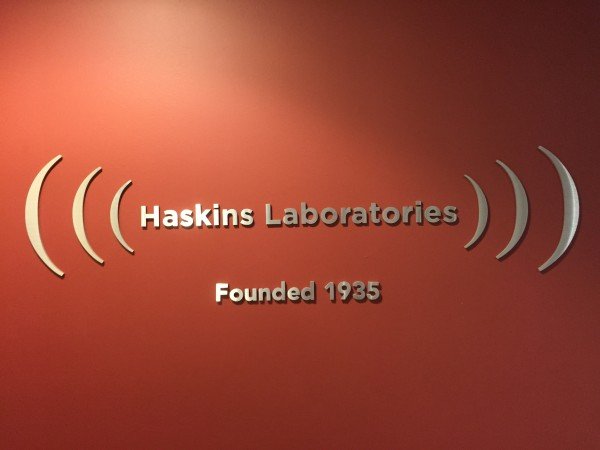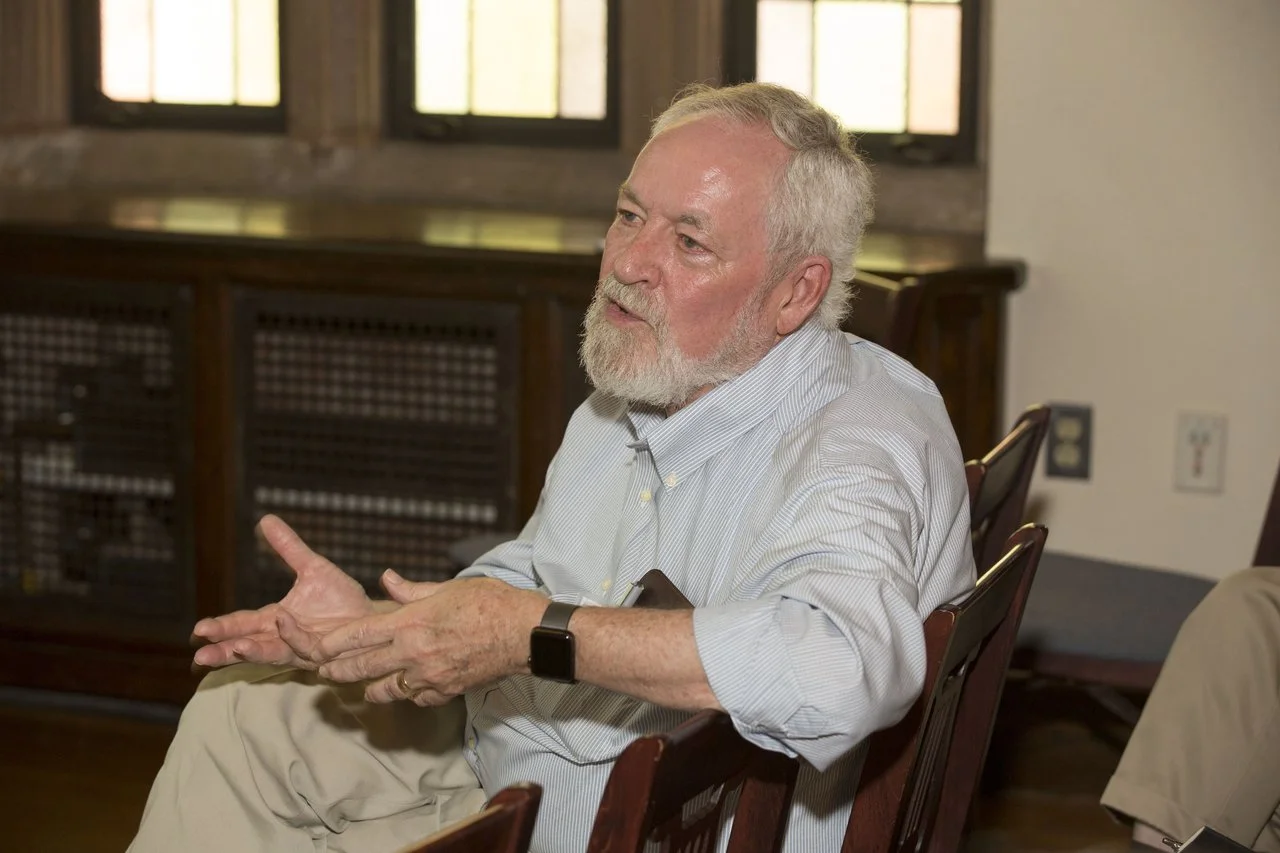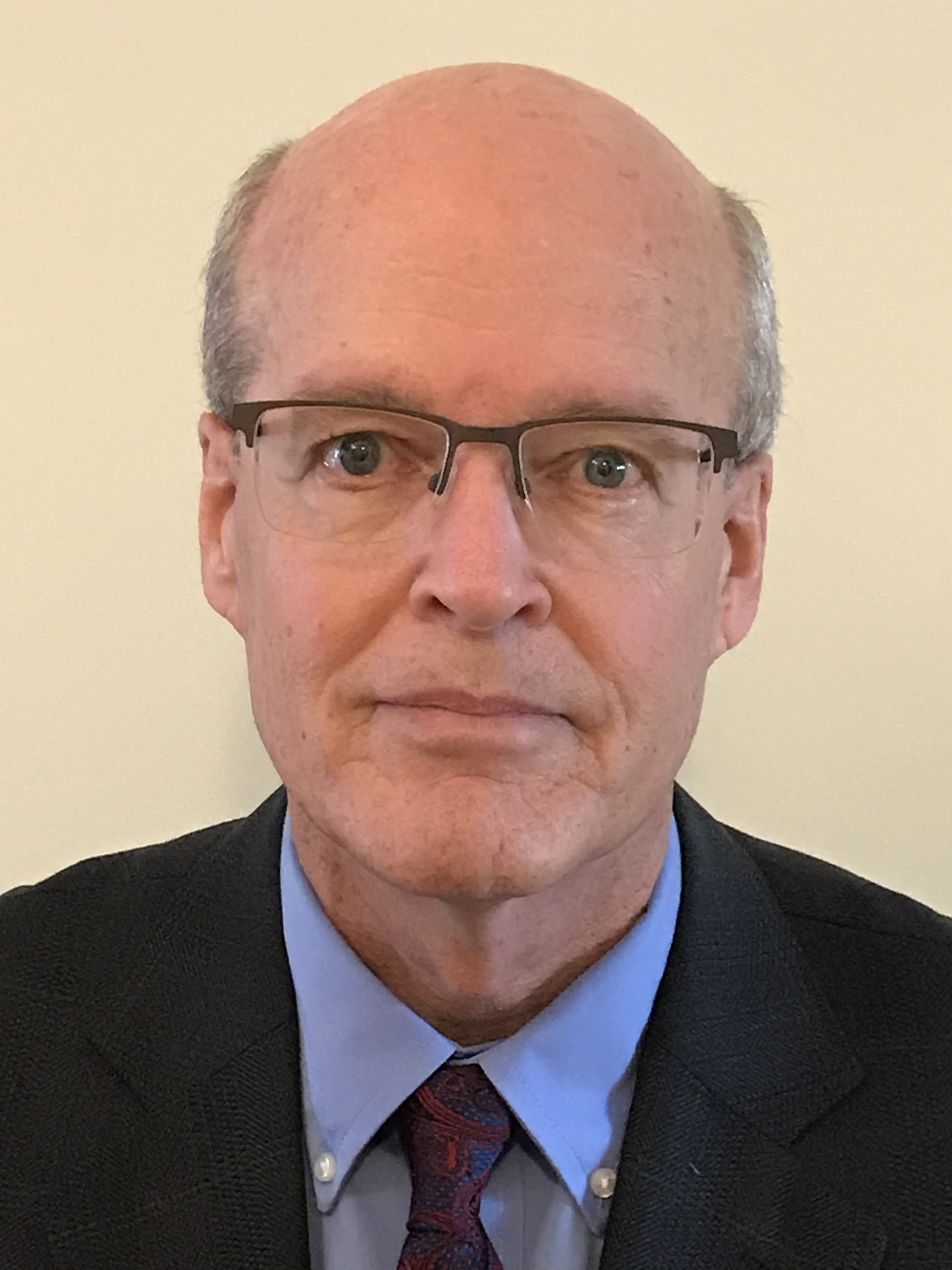Haskins Laboratories
The Science of the Spoken and Written Word
Haskins Laboratories is an international, multidisciplinary community of researchers who conduct basic and applied research on spoken and written language and related topics. Exchanging ideas, fostering collaborations, and forging partnerships across the sciences, it has produced groundbreaking research that enhances our understanding of—and reveals ways to improve or remediate—speech perception and production, reading and reading disabilities, and human communication. We continue to serve as an intellectual and resource hub as we actively develop future opportunities and collaborations.
Yale-UConn Haskins Global Literacy Hub
The University of Connecticut, Yale University, and Haskins Laboratories have announced the Haskins Global Literacy Hub to help improve literacy outcomes locally and globally.
The Haskins Global Literacy Hub is an international and interdisciplinary collaborative group that brings together an unprecedented partnership of over 20 teams of expert researchers, practitioners, educators, and education technology specialists from all continents. Motivated by scientific evidence pointing to literacy as a crucial steppingstone to escaping poverty and leading healthy, productive and fulfilling lives, our goal is to improve literacy development across cultures, languages and continents.
The Haskins Global Literacy Hub operates as a multi-institutional network, with key centers at Yale University School of Medicine’s Child Study Center, led by Linda Mayes (referred to as the “Global Literacy Hub” at Yale), and at UConn Waterbury, led by Fumiko Hoeft, as well as UConn Storrs/Global, led by Daniel Weiner (referred to as the “Haskins Global Literacy Hub” at UConn). The Haskins Global Literacy Hub is co-led by Kenneth Pugh, Fumiko Hoeft, Benjamin Powers, Maureen Lovett, John Russell, Jay Rueckl, Vincent Gracco, Mary Young, and Sumita Saluja. With a global reach, the Hub promotes cross-cultural literacy research and educational outreach. The literacy hubs at Yale and UConn are unified under a formal Memorandum of Understanding (MOU), signed in April 2024. The Haskins Global Literacy Hub, with leadership across both universities, is advancing global partnerships in Argentina, Jamaica, Taiwan, India, and Israel, working to translate Haskins science to improve literacy outcomes in the US and abroad.
Haskins Laboratories coexists with the Haskins Global Literacy Hub, operating under the same structure at both Yale and UConn with global institutional partners and researchers, and under the same MOU. It is co-led by Kenneth Pugh, Nicole Landi, Fumiko Hoeft, Vince Gracco, Jay Rueckl, Douglas Whalen, and Philip Rubin. After more than 75 years as an independent not-for-profit institution, Haskins Laboratories has transitioned to a collaborative model between Yale University School of Medicine (Yale Child Study Center) and the University of Connecticut. Haskins-affiliated researchers continue to focus on speech, language, reading, and neuromodulation, while maintaining strong technical infrastructure in New Haven (Yale) and Storrs (UConn), with an emerging research site in Waterbury (UConn). At the heart of Haskins Laboratories are the people who are part of the Haskins community. This includes affiliates, part-time investigators, postdoctoral fellows, and graduate students from a variety of institutions.
Haskins Seminar Series.
The most recent Haskins Seminar took place on Thursday, October 30, 2025, at 3:00 PM, and featured Dr. Amy Margolis from The Ohio State University, Child Mind Institute. This seminar was held virtually.
For additional information, please refer to the meeting flyer.
Warm regards, Haskins Global Team
Stephen R. Anderson (1943 - 2025).
We are very sad to report that our friend and colleague, Steve Anderson, died on October 13, 2025. In addition to being a member of the Yale Linguistics Department from 1994 until his retirement in 2017, he was a long time member of the Haskins Board of Directors and a supporter of both Haskins and the Endangered Language Fund. He was a brilliant scholar, a friend and mentor to many, and an inspiration. He will be missed. See the Yale Linguistics In Memoriam page for additional information.
See the New York Times obituary.
Philip Rubin featured in article in UConn Today.
On June 11, 2025, Philip Rubin, Chair of the Board and CEO Emeritus of Haskins Laboratories and a Board of Trustees member at UConn, was featured in an article in UConn Today, “Board of Trustees Member Philip Rubin Continues Legacy of Research, Facilitation”, by Matt Englehardt. .
Richard Aslin elected to the British Academy.
On July 18, 2024, Richard Aslin, Senior Research Scientist/Senior Lecturer at the Yale Child Study Center at the Yale School of Medicine, was elected an international member of the British Academy. Prior to joining the Child Study Center, he was a Senior Research Scientist at Haskins Laboratories. Here is the list of new fellows (which includes Catherine Snow and Eve Clark). This is a wonderful, and well-deserved honor. Congratulations, Dick!!
ASY (Articulatory Synthesis) Demo
The legacy ASY Demo (articulatory synthesis) was added to this website on Jan. 24, 2024.
Fundamentals of Developmental Cognitive Neuroscience
Heather Bortfeld and Sylvia A. Bunge have written a new book, Fundamentals of Developmental Cognitive Neuroscience (Cambridge University Press, 2024), “an exciting introduction to the scientific interface between biological studies of the brain and behavioural studies of human development.”
Physical and Linguistic Aspects of Speech
Physical and Linguistic Aspects of Speech (Cress Books, 2024) presents physical theory of speech production contained in Acoustics of Speech Production and On Formants, both by Richard S. McGowan, in a largely non-mathematical way. Linguistic examples illustrate how the physical theory illuminates understanding of phonetic processes, and, to some extent, phonological models.
The Endangered Language Fund (ELF)
The Endangered Language Fund (ELF) is a 501(c)3 founded by Doug Whalen in 1996 with the goal of supporting endangered language revitalization and documentation projects. Its main mechanism for supporting work on endangered languages has been funding grants to individuals, tribes, and museums. ELF’s grants have promoted work in over 60 countries and have funded a wide range of projects,










